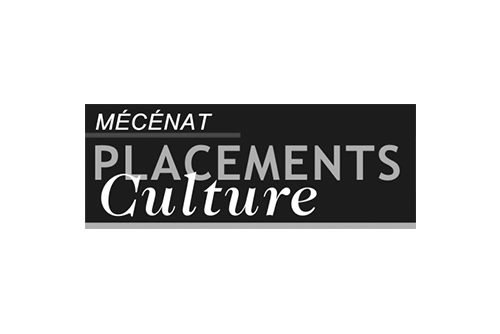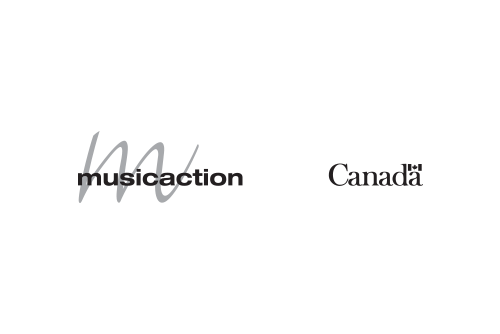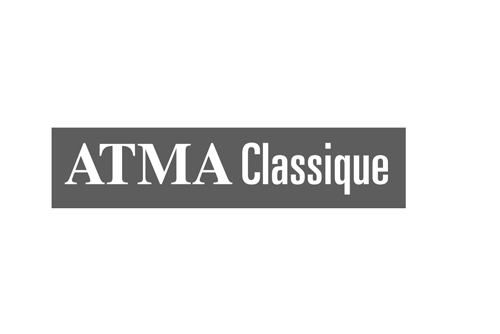
Concert-documentaire
TRANSTAÏGA
Dimanche 18 septembre 2022
16h
Salle Pauline-Julien
15 615 boul. Gouin Ouest
Sainte-Geneviève, Québec
H9H 5K8
The Baroque trio sonata originated in Italy during the 17th century and was soon adopted throughout Europe. The genre calls for two melody instruments and, to provide the harmony, a basso continuo part. It features contrapuntal interplay or dialogue between the melody instruments. It rarely calls for the pure virtuosity characteristic of the solo sonata, a genre that developed slightly later. This concert will show both the ingenuity and extraordinary variety of style and mood made possible by the trio sonata: from Italian vigor to French delicacy, from English melancholy to German assurance.
Date
Friday, November 24, 2023
7:30 PM
Location
Salle Multimédia du Conservatoire
4750 Av. Henri-Julien
Montréal, QC
H2T 2C8
Box office
438 771-4948
Box office opening :
Monday to Thursday, 1 to 4 p.m.
billetterie@boreades.com
Les Boréades
5 musicians
Olivier BRAULT – violon
Mélisande CORRIVEAU – violoncelle et viole de gambe
Program note
From the dawn of the period described as the “Baroque,” which spanned 1600 to 1750, the trio sonata brought together all the characteristics that would set it apart as a major genre. The creation in Italy—at the end of the Renaissance—of a form of instrumental music that was not derived from vocal genres, the abandonment of contrapuntal processes as principal methods of composition, the desire to express human passions in the best way possible, and the perfecting of the crafting of violins gave composers a new freedom to experiment with all sorts of sound combinations for ensembles of all sizes, creating what they would call the stile concertato.
Program
Salomone Rossi (1570-1630)
Sinfonia nº 11 pour deux violons et basse continue, « en écho »
(Il primo libro delle sinfonie et gagliarde, Venise, 1607)
Dario Castello (1602-1631)
Sonate nº 12 pour flûte à bec, violon et basse continue
(Sonata concertante in stilo moderno, Libro secondo, Venise, 1629/1644)
Dietrich Buxtehude (1637-1707)
Sonate en trio pour violon, viole de gambe et basse continue en si bémol majeur BuxWV 273 (manus., s.d.)
Sonata – Adagio – Allegro
Allemande
Courante
Sarabande
Gigue
Sybrand II van Noordt (1659-1705)
Sonate pour flûte à bec et basse continue en [ré] mineur op. 1 nº 4 (Sonate per il cembalo appropriate al Flauto & Violino, Amsterdam, 1690)
Adagio – Allegro – … – Vivace – Adagissimo
Arcangelo Corelli (1653-1713)
Sonate en trio pour deux violons et basse continue en la mineur op. 3 nº 10 (Sonate a tre, Rome, 1689)
Vivace – Allegro
Adagio
Allegro
Pause
Jean-Féry Rebel (1666-1747)
Sonate en trio pour deux violons et basse continue en do mineur, « Le tombeau de Monsieur de Lully »
(Recueil de douze Sonates à 2 ou 3 parties, Paris, 1712)
Gravement
Gay
Lentement
Vivement
Les Regrets
Carl Philipp Emanuel Bach (1714-1788)
Sonate en trio pour flûte, violon et basse continue en la mineur H. 572 (manus., Francfort, 1735 / Berlin, 1747)
Allegretto
Adagio
Allegro assai
François André Danican Philidor (1726-1795)
Quatuor pour flûte, deux violons et basse continue nº 3
en sol majeur (L’art de la modulation, Paris, 1755)
Moderato
Arias I & II
Giga (Allegro)









